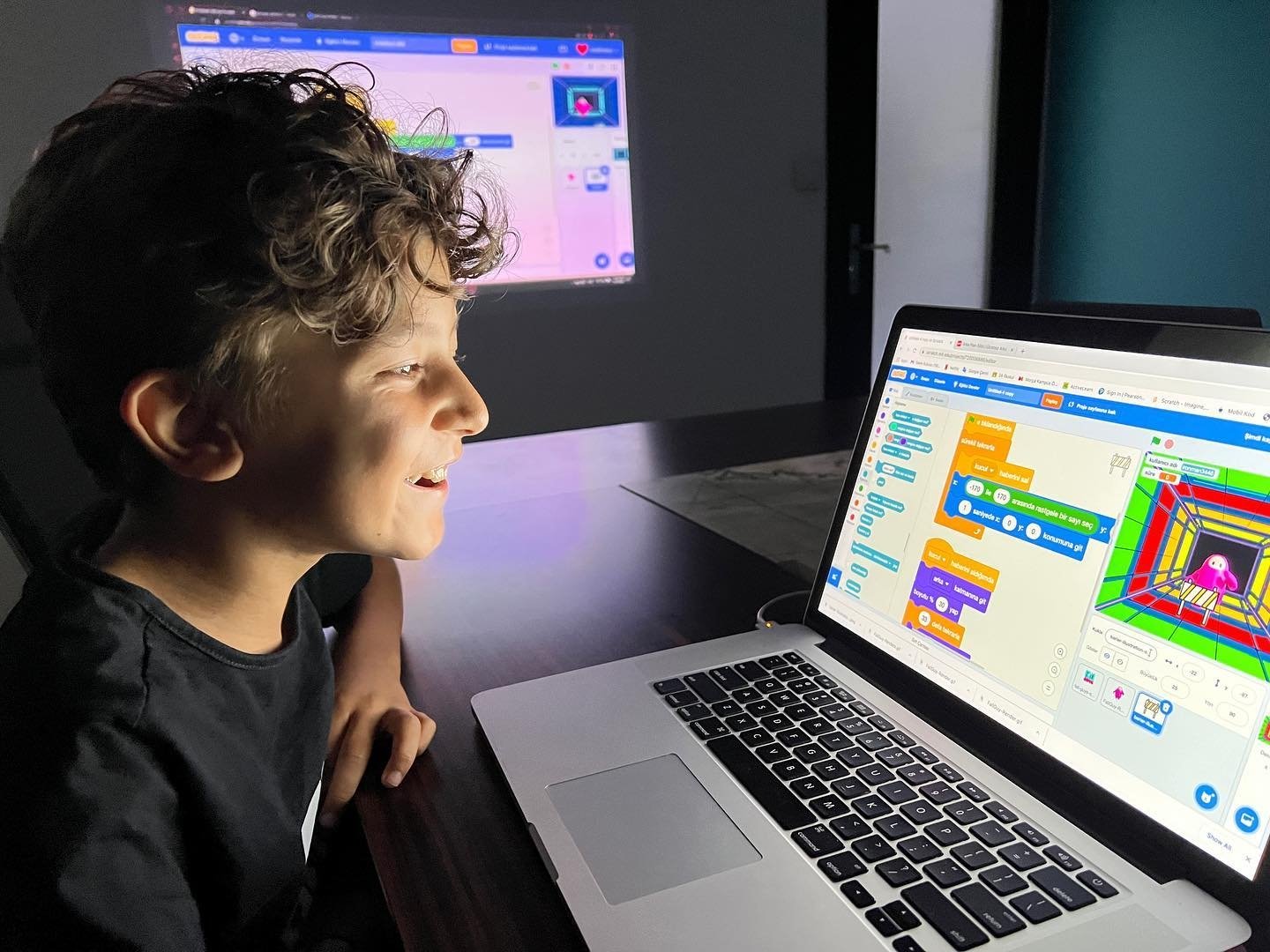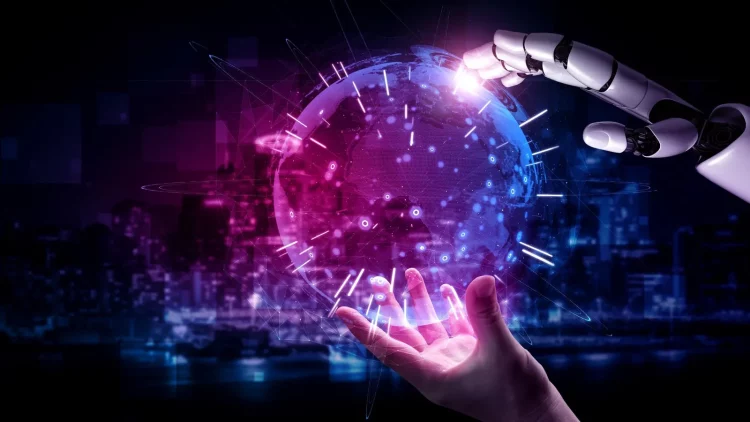In the era of artificial intelligence (AI) and automation, the question has arisen: Why teach kids to code when AI can do the coding for them? The landscape of technology is shifting rapidly, and it seems like machines are already taking over some of the tasks that were once the domain of human workers. From self-driving cars to AI-powered code generation tools, it’s clear that automation is making huge strides. But does this mean we should abandon the tradition of teaching children to code? Absolutely not.
The Value of Coding Beyond Just Writing Code
At its core, teaching kids to code is not just about learning syntax and debugging lines of code. It’s about cultivating problem-solving skills, creativity, and an understanding of how technology shapes our world. Even in a future dominated by AI, these fundamental skills will remain indispensable.
- Problem-Solving Skills
At the heart of coding is problem-solving. When kids learn to code, they are trained to break down complex problems into smaller, manageable tasks. This analytical thinking will benefit them in all aspects of life, whether they are designing a solution to a real-world problem, organizing a project at school, or navigating the challenges of their future careers. - Creativity and Innovation
Coding isn’t just about technical proficiency. It’s an incredibly creative activity. Kids can create apps, games, and websites—tools that allow them to express themselves and bring their ideas to life. This fosters imagination and innovation, skills that are irreplaceable, no matter how advanced AI becomes. - Understanding the Technology They Use
AI tools are only as effective as the people who use them. By understanding the basics of coding, children will develop a deeper understanding of the technologies that are shaping their world. Knowing how code works helps them become more informed consumers and creators, not just passive users of technology.
AI as a Tool, Not a Replacement
While AI is capable of automating repetitive coding tasks, it is important to recognize that AI cannot replace human intuition, creativity, and decision-making. AI tools like GitHub Copilot and OpenAI’s Codex have revolutionized the way developers write code, suggesting lines of code and even generating entire functions. However, these tools are still reliant on human input to guide the process. They can’t autonomously decide what features an app should have or how to prioritize them.
Here’s where kids come in: they’re not just learning to write lines of code. They’re learning to make decisions, think critically, and imagine new possibilities. AI may be a tool that assists in coding, but it cannot replace the human element—the vision, the creativity, and the judgment.

The Role of AI in the Future of Coding Education
Rather than making coding obsolete, AI can enhance coding education. For example:
- AI-Powered Feedback
AI tools can provide instant feedback on students’ code, helping them learn faster and with more precision. This allows children to get real-time guidance, which can be a valuable resource as they experiment with different coding languages and concepts. - Personalized Learning
AI can be used to tailor coding lessons to the individual needs of students. With AI-driven platforms, children can learn at their own pace, revisiting challenging topics and moving forward when they feel ready. This personalized approach ensures that students are engaged and able to reach their full potential. - Encouraging Collaborative Learning
AI-powered tools can also foster collaborative learning. Platforms can recommend projects based on students’ interests, allowing them to work together on coding challenges, solve problems, and share ideas. This social aspect of learning is crucial for developing teamwork and communication skills, which will always be in demand, regardless of how advanced AI becomes.
The Human Element: Creativity, Ethics, and Empathy
As AI continues to evolve, it is essential to recognize that coding is not just a technical skill; it also involves a deep understanding of human values and social responsibility. While AI can optimize efficiency, it cannot replace the need for empathy, ethics, and creativity.
- Ethical Decision-Making
In the world of technology, ethical decisions must be made daily. Children who learn to code will also learn how to think about the ethical implications of their work. Should an app prioritize user privacy or maximize profits? Should an AI model be trained to recognize certain features in an unbiased way? These are decisions that require human judgment. - The Role of Creativity in Problem Solving
AI excels at pattern recognition and data processing, but it lacks the ability to innovate in the same way humans can. Kids who learn to code will have the tools to innovate in ways that AI cannot. They can tackle problems in novel ways, push the boundaries of current technology, and imagine entirely new solutions to old challenges. - Empathy in Design
Technology is at the heart of nearly every aspect of modern life, and it’s crucial that the individuals designing technology consider the needs and experiences of the people who will use it. Coding teaches kids to design with empathy in mind, considering how different users will interact with their creations. This perspective is key in designing inclusive and accessible technology.
Preparing Kids for Jobs That Don’t Exist Yet
The job market of the future is likely to be vastly different from today’s. With AI automating many of the tasks that were once performed by humans, the question becomes: What will people do when machines take over?
The answer is that humans will focus on the tasks that machines cannot do—tasks that require creativity, critical thinking, emotional intelligence, and problem-solving. These skills are precisely what coding nurtures. By teaching kids to code, we are not just preparing them for existing jobs in tech, but for careers that haven’t even been imagined yet.
In the future, coding could be a fundamental skill, much like math or reading. Even if kids end up in fields where they aren’t directly writing code, the problem-solving and logical thinking learned through coding will be transferable to any career, from engineering to entrepreneurship to medicine.

Why Coding Will Always Matter
Despite the rise of AI, coding will always matter for several reasons:
- Human Creativity
No AI can replace human imagination and creativity. Children who code will develop the ability to think outside the box, challenge conventions, and come up with unique solutions to problems. - Adaptability
AI may be advanced, but it’s the human touch that allows technology to adapt to new environments and contexts. The need for adaptive thinking will remain crucial as technology continues to evolve. - Technological Literacy
As digital tools become increasingly embedded in all aspects of life, understanding the basics of how these tools work will be a critical skill for navigating the future. Coding gives kids a foundation of digital literacy that will enable them to understand and use technology in innovative ways.
Conclusion
In a world where AI can assist with many tasks, the need for humans to understand and engage with technology remains stronger than ever. Teaching kids to code is not about making them programmers—it’s about equipping them with the skills to thrive in a future that will inevitably be shaped by AI. Coding nurtures critical thinking, creativity, and ethical decision-making—skills that no machine can replicate.
AI is a tool. It can help with coding, but it cannot replace the creativity, empathy, and problem-solving abilities that kids will develop as they learn to code. So, instead of asking why we should teach kids to code when AI can do it for them, we should be asking how we can use AI to make the learning process even more engaging, dynamic, and effective.
Let’s empower the next generation not just to use technology, but to shape it.











































Discussion about this post